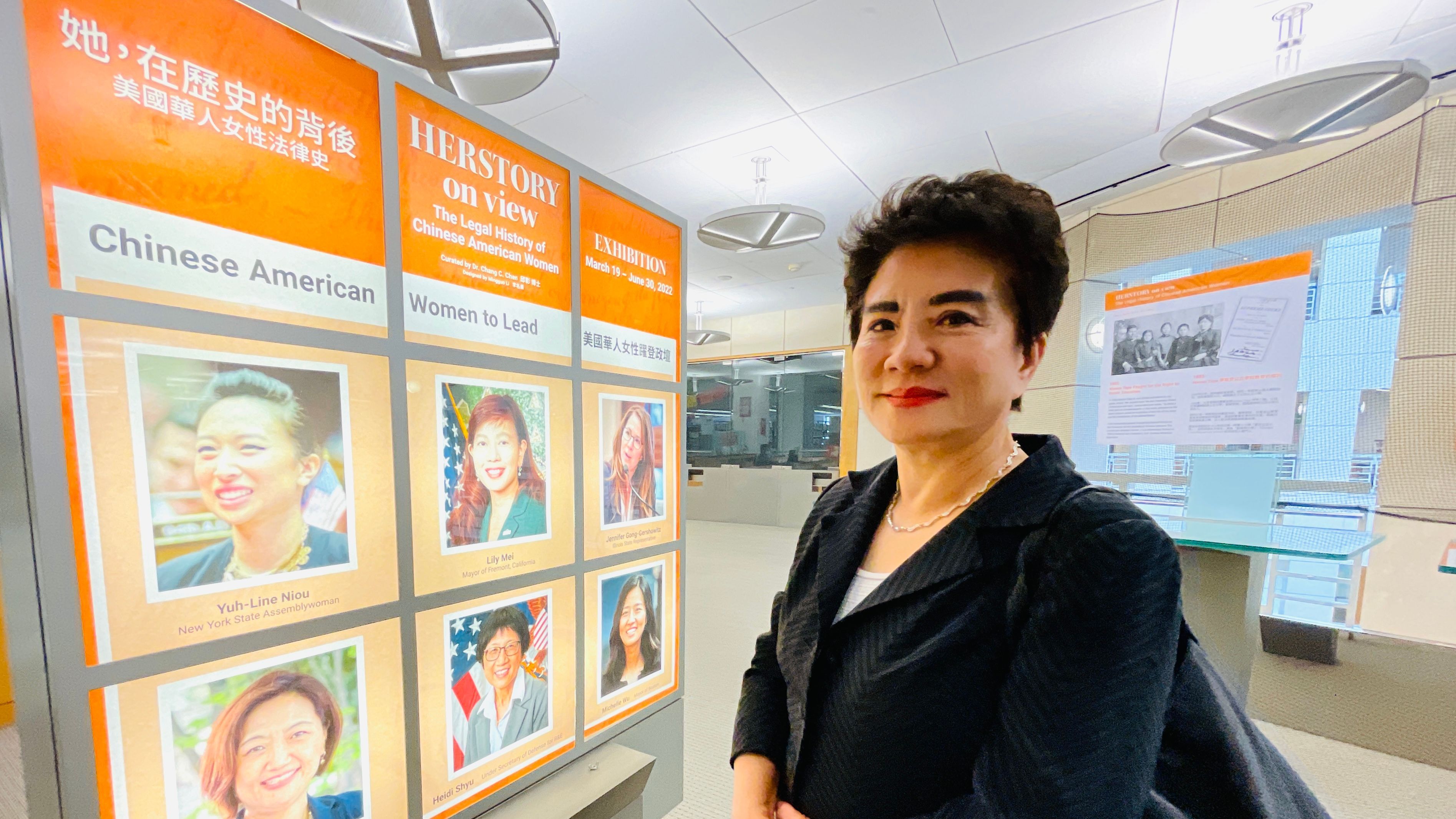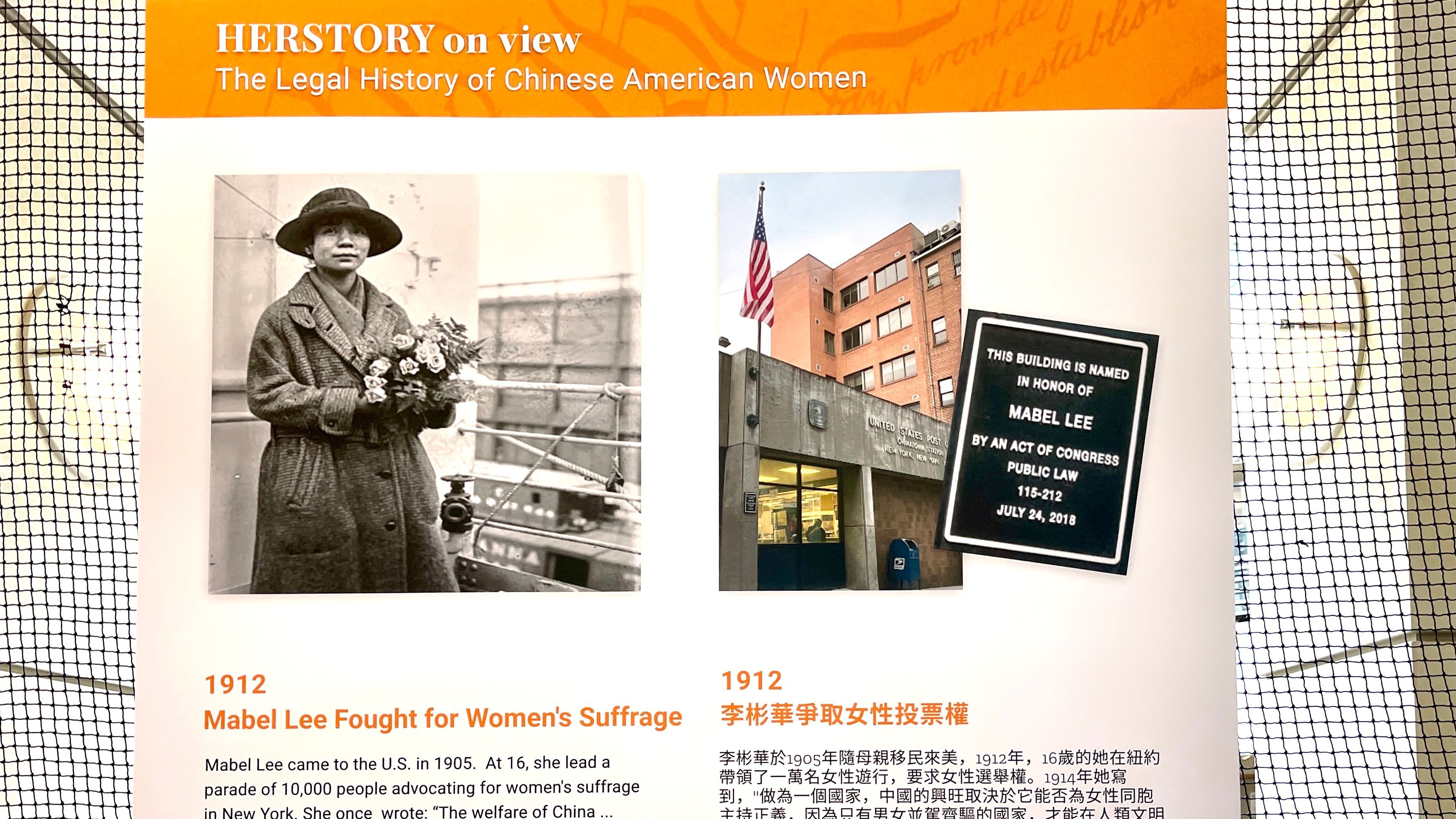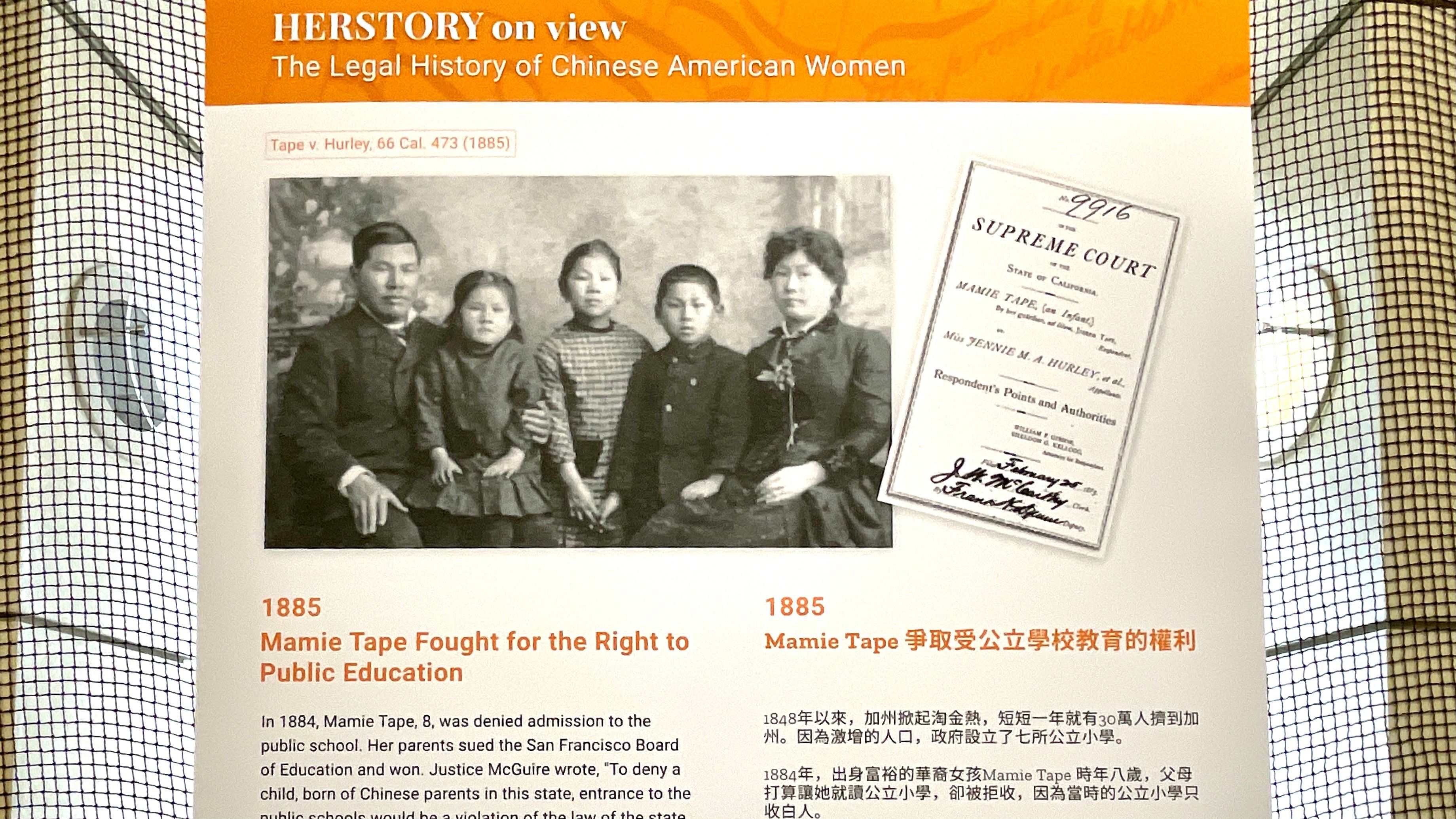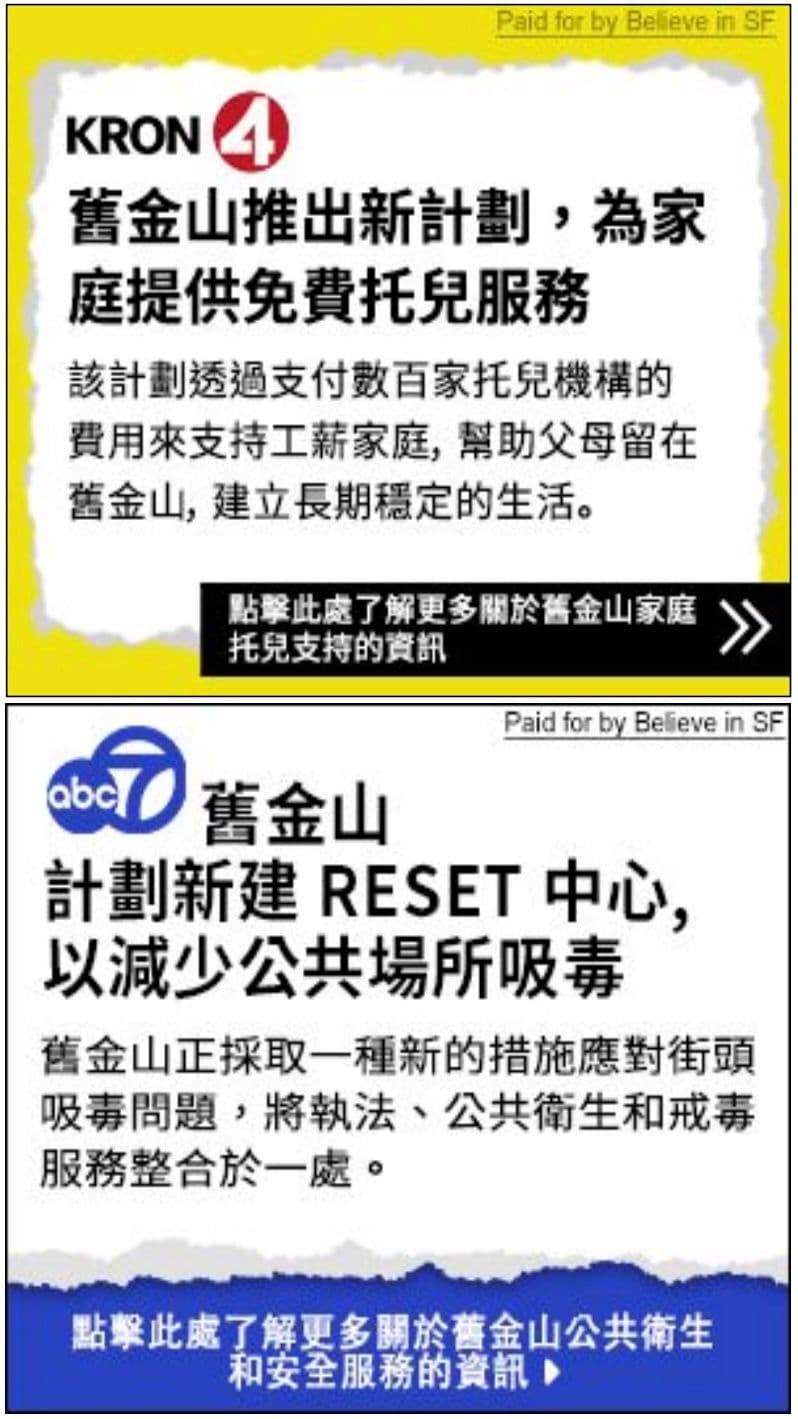Dr. Chang Chen has documented stories of Chinese American women


(SAN FRANCISCO) Dr. Chang C. Chen earned a Ph. D in biochemistry and a law degree. She is also a writer who has authored over 50 books. In recent years, she is dedicated to documenting the stories of the Chinese American women who had fought for their equal rights through legal proceedings that led to rewriting American history.
Herstory On View: The Legal History of Chinese American Women (1912-2020) is a new exhibition for public view in the Chinese Center of San Francisco Main Library from March 19 to June 30.
The exhibit is part of Chen's studies to be documented in her two books, Herstory 1 and 2 of The Legal History of Chinese American Women published in 2016 and 2021 respectively.
The exhibit showcases Chinese American women who had filed lawsuits fighting for remedies for discriminations, equal opportunities for education and voting rights, starting in 1848. Many of these legal fights became landmark cases to benefit all Americans.
In an earlier interview at the Chinese Center of San Francisco Main Library, Chen shared her own stories of how and why she would spend most of her time gathering stories of the Chinese American Women in the past
decades.
"I truly believe women will lead the world very soon," Chen said. "It already happened outside the United States. In Asia and Europe, we can find a number of the country leaders who are women."

Chen is a renowned, talented and outstanding woman herself in multi professions. She grew up in Taiwan and came to the United States in the 1970s to pursue her graduate studies.
After graduating from the Taiwan University with an undergraduate degree in Botany, Chen arrived in the United States with her ex-husband, who studied medicine, for graduate programs at the Columbia University in New York.
Chen first received her M.S. in biochemistry from Columbia University and later obtained her Ph. D in biochemistry from Rutgers University. She was a scientist conducting research in the labs after her doctoral program. But working at the lab was the turning point that influenced her to pursue a law degree.
"One day the lab supervisor determined to promote a scientist to a senior position. He chose to promote the man and told me that the male scientist needed the promotion and more pay for his family," Chen recalled. "It was a gender discrimination."
Chen was sad and frustrated by learning the unfair treatment. She went to talk to a lawyer seeking advice to file a lawsuit against the lab. That lawyer only provided her with a statement in 300 words. "Right after our lab received that statement, I was promoted to the senior status," said Chen.
Chen decided to pursue her second career in law. She wanted to return to Columbia University for a law degree. She was required to submit a 300-word statement as part of the application to the law school. She seeked help again from the same lawyer. Ultimately Chen was admitted.

Chen moved to the San Francisco Bay Area and passed her bar exam in California. "When I first arrived in San Francisco in the 1970s enroute to Columbia University in New York. I fell in love with San Francisco," said Chen, who is currently residing in the East Bay.
"I like the diversity of San Francisco. Once we understand more of each other, we will respect other cultures and communities more, as a result, the entire community will be safer. The ruling from the judges would be more reasonable," Chen stated.
Chen has practiced law overseas and in China. "Back in the 1980s and 1990s, with the opening of the economy in China, big U.S. law firms were hiring more bilingual lawyers who speak Chinese. I was assigned by the law firms to station overseas," said Chen.
Beyond her legal profession, Chen has been active in Taiwan and Hong Kong. She was elected to be a Taiwan Senator in 2001 and hosted four television shows in the 1990s.
Today, Chen continues to practice law in California and serves as a legal consultant in China and Taiwan. She also spends more of her time on gathering stories of the Chinese American women who made history.
When asked why she focused on Chinese American Women, Chen answered, "So many people are writing stories of men, but very few are writing for women. I am one of the very few to document all these stories of Chinese American women."
- Alleged scams appear in Chinese-language newspaper job advertisements seeking workers caring for the elderly, San Francisco Police Department urges victims to file reports
- San Francisco becomes a newest local partner of Dolly Parton’s Imagination Library in the Bay Area to offer free books to all young children
- California state employees alarmed by demand to prove their citizenship or work eligibility
- “No Red Lanes on Ocean Avenue”, Chinese American merchants, residents and community members in San Francisco say
- Open Forum: Strong protest against unilateral street closure decision for SF Chinatown night market without merchant consultation
- Interim Police Chief Paul Yep honored for leadership with historic low crime rate and record high police hirings
- An increase in flu activity seen in SF Bay Area, experts recommend everyone aged 6 months and older to receive the flu vaccine
- SB 1234 is fully in effect in 2026 and requires employers to offer retirement plans to all employees, full-time, part-time & short-term






